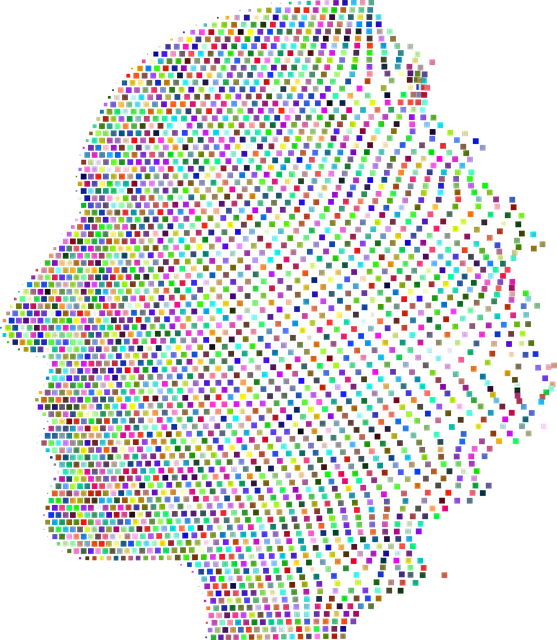Aurora Kaiser Permanente's behavioral health providers are tackling mental illness diagnosis challenges through innovative strategies. They emphasize tailored education, public awareness, and holistic care practices like Self-Care Routine Development and compassion cultivation training. Rigorous traditional assessment training, coupled with advanced digital tools including algorithms and data analytics, ensures precise diagnoses and effective, personalized treatments. Interactive platforms like the Mental Wellness Journaling Exercise empower patients to contribute valuable insights for healthcare providers while streamlining diagnosis processes.
Mental illness diagnosis accuracy is a critical aspect of patient care, yet remains a challenging domain. This article explores efforts to enhance diagnostic precision, focusing on innovative strategies employed by Aurora Kaiser Permanente’s behavioral health providers. We delve into understanding the current challenges in mental illness diagnosis and present evidence-based practices aimed at improving accuracy through training and education. Additionally, we discuss the integration of technology as a game-changer, offering digital tools for more precise and efficient diagnoses.
- Understanding the Challenges: Current State of Mental Illness Diagnosis
- Aurora Kaiser Permanente's Approach: Innovative Strategies for Behavioral Health Providers
- Evidence-Based Practices: Enhancing Diagnostic Accuracy through Training and Education
- Integrating Technology: Digital Tools for More Precise and Efficient Diagnoses
Understanding the Challenges: Current State of Mental Illness Diagnosis

The current state of mental illness diagnosis presents several challenges that underscore the need for improvement efforts. Despite advances in research and an increasing awareness of mental health issues, accurate diagnosis remains a complex task. Aurora Kaiser Permanente behavioral health providers frequently encounter cases where symptoms overlap between various disorders, making it difficult to pinpoint a specific condition. This complexity is further exacerbated by the unique presentation of mental illness across different individuals and cultural contexts, leading to potential misdiagnosis or delayed treatment.
Efforts to enhance diagnosis accuracy are crucial for ensuring effective care. Integrating Mental Health Education Programs Design tailored for both healthcare professionals and the public can significantly contribute to this goal. Public Awareness Campaigns Development focused on destigmatizing mental illness and promoting early intervention can also play a pivotal role. Additionally, producing Mental Wellness Podcast Series can provide accessible information and personal narratives, fostering a better understanding of mental health issues among the general population.
Aurora Kaiser Permanente's Approach: Innovative Strategies for Behavioral Health Providers

Aurora Kaiser Permanente has taken a leading role in enhancing mental illness diagnosis accuracy through innovative strategies tailored for behavioral health providers. They emphasize holistic care, integrating Self-Care Routine Development for Better Mental Health to support both patients and practitioners. By promoting compassion cultivation practices among healthcare staff, Aurora Kaiser Permanente fosters an environment of empathy and understanding, which can significantly improve patient interactions and diagnostic accuracy.
Additionally, they offer comprehensive training in Social Skills Training to address communication gaps often present in mental health care. This approach ensures that behavioral health providers are equipped with the necessary tools to recognize subtle cues and nuances in patient behavior, leading to more precise diagnoses and effective treatment plans.
Evidence-Based Practices: Enhancing Diagnostic Accuracy through Training and Education

Aurora Kaiser Permanente behavioral health providers are at the forefront of implementing evidence-based practices to enhance diagnostic accuracy. Through rigorous training and education programs, they are equipped with the latest techniques for assessing mental health conditions. These strategies not only include traditional diagnostic tools but also integrate innovative approaches like Mindfulness Meditation and Stress Reduction Methods. By fostering a culture of continuous learning, Aurora Kaiser Permanente ensures that its healthcare providers stay updated with best practices, enabling them to deliver more precise diagnoses and effective treatments.
Moreover, the organization prioritizes Healthcare Provider Cultural Competency Training to address diverse patient populations. This training equips professionals with the skills to navigate complex cultural nuances, leading to improved interactions and, ultimately, more accurate assessments. By combining these evidence-based practices, Aurora Kaiser Permanente behavioral health providers strive to provide high-quality care tailored to each patient’s unique needs and background.
Integrating Technology: Digital Tools for More Precise and Efficient Diagnoses

Aurora Kaiser Permanente’s behavioral health providers are leveraging technology to enhance diagnosis accuracy and efficiency. Digital tools, such as advanced algorithms and data analytics, enable more precise assessments by analyzing patient history, symptoms, and behaviors across vast datasets. This innovative approach complements traditional methods like face-to-face interviews, ensuring a comprehensive understanding of mental wellness concerns.
By integrating these digital solutions, Aurora Kaiser Permanente aims to improve the early detection of conditions like depression prevention and facilitate coping skills development through personalized guidance. Mental Wellness Journaling Exercise, for instance, is an interactive platform that encourages patients to track their moods and experiences, providing valuable insights for healthcare providers. This technology-driven approach not only streamlines diagnosis but also empowers individuals to actively participate in their mental health journey.
Mental illness diagnosis accuracy is a multifaceted challenge that requires innovative strategies from behavioral health providers. As discussed, Aurora Kaiser Permanente’s approach combines evidence-based practices with cutting-edge technology, offering a comprehensive framework for improvement. Through enhanced training and education, integration of digital tools, and a deep understanding of the current state of diagnosis, we can strive towards more precise and efficient mental health assessments. By adopting these efforts, behavioral health providers can significantly improve patient outcomes and create a more supportive healthcare landscape for those facing mental illness.






